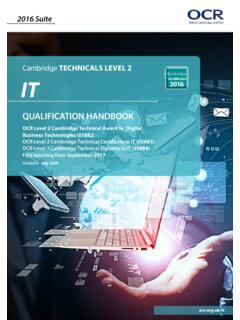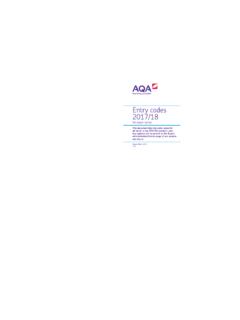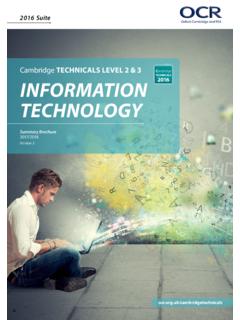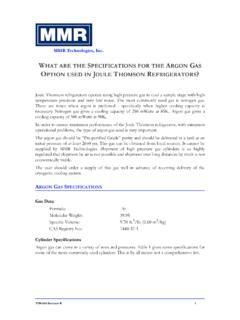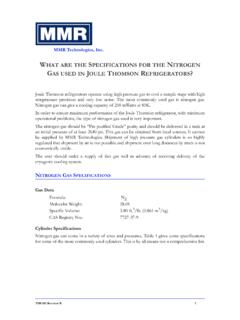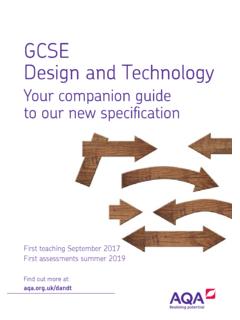Transcription of ICT and Computer Science in UK schools
1 ICT and Computer Science in UK schools Naace, ITTE, and the Computing at school Working Group, June 2012 Naace is a professional membership association of educators, technologists, policy makers, school leaders and teachers who represent the role of technology in advancing education. Naace is recognised as the Information and Communication Technology (ICT) subject association for teachers and schools . Computing at school (CAS) is a grassroots organisation for Computer Science teachers in UK schools . Membership includes teachers, parents, governors, exam boards, industry, professional societies, and universities.
2 CAS is a collaborative partner with the BCS through the BCS Academy of Computing. CAS is recognised as the subject association for Computer Science . The Association for IT in Teacher Education (ITTE) is the professional association for IT teacher training across the UK. Its members are involved in initial teacher training of primary teachers, subject specialist ICT and Computer Science teachers in secondary and post-16, Technology Enhanced Learning (TEL) across all subjects and research into ICT/ Computer Science /TEL pedagogy.
3 Naace, CAS and ITTE have complementary roles, and are committed to working together to reform and develop the curriculum and pedagogy in Computer Science and ICT in British schools . The three organisations will work together to prepare future teachers effectively and to support existing teachers with good CPD. Curriculum We see ICT and Computer Science as forming part of a broad and balanced curriculum, which every young person should have the opportunity to learn from early years and primary school onwards.
4 We believe that schools should have the freedom to organise this curriculum to best meet the needs of their learners and context. Computer Science is the study of the foundational principles and practices of computation and computational thinking, and their application in the design and development of Computer systems. It is a subject discipline, on a par with Maths or Physics. A model curriculum for Computer Science1 has been developed by CAS. Information and Communication Technology (ICT) focuses on the creative and productive use and application of technology and Computer systems, especially in organisations.
5 We take ICT to also include Information Technology, Applied ICT, Digital Literacy and Skills, and e-safety, across the curriculum. Naace has developed a Curriculum framework for ICT for Early Years/KS1/KS2 and KS32, and is further developing this in consultation with its members. 1 2 ICT and Computer Science in British schools Naace, ITTE, and the Computing at school Working Group, June 2012 2 The two overlap, of course, especially in the early and primary years: an education in Computer Science includes aspects of the use and application of computers, and an education in ICT covers aspects of programming and understanding of computing devices.
6 But as learners progress to specialised subjects, differing characteristics emerge which define ICT and Computer Science as separate subjects with their own qualifications: Information and Communication Technology Computer Science The study of Computer systems and how they are used The study of how Computer systems are built and work Human need is central to the subject Computation is central to the subject Concerned with the design, development and evaluation of systems, with particular emphasis on the data, functional and usability requirements of end users Concerned with algorithmic thinking.
7 And the ways in which a real-world problem can be decomposed in order to construct a working solution Focuses on building or programming a solution by using a combination of currently available devices and software. Solves problems and develops new systems by writing new software and developing innovative computational approaches. Emphasis on selecting, evaluating, designing and configuring appropriate software and devices. Programming is one method of creating desired outcomes. Emphasis on principles and techniques for building new software and designing new hardware.
8 Programming and coding is a central technique to create outcomes. ICT supports, enhances and empowers human activity and informs future developments. Computation is a lens through which we can understand the natural world, and the nature of thought itself, in a new way. Tending towards the higher level study and application of ICT in a range of contexts, from academic to vocational. Tending towards higher level academic study of Computing and Computer Science . We believe that every student should have an entitlement to Computer Science and ICT as part of the curriculum from early years and primary school onwards and should have the opportunity to specialise within the subject at secondary level.
9 For Computer Science this represents a major change from the status quo. ICT is an established National Curriculum subject with many schools already interpreting and teaching ICT in creative and interesting ways as a discrete subject within a broad and balanced curriculum. Where a school s curriculum already includes clearly-visible aspects of Computer Science then this should be encouraged and good practice shared. Where aspects of Computer Science are not clearly visible then schools should review their curriculum accordingly.
10 ICT and Computer Science in British schools Naace, ITTE, and the Computing at school Working Group, June 2012 3 This does not imply that Computer Science should be taught separately in the early key stages or form part of a separate scheme of work. This picture gives the idea: Early Years and Primary school . The curriculum should contain aspects of ICT and Computer Science , although these will not be taught in discrete lessons any more than Chemistry and Physics are within Science . Although the students may be unaware of the distinction between different strands of the curriculum, it is important for the teacher to be aware of their separate learning objectives, just as he or she is aware of the learning objectives for Life processes and living things and Physical processes when teaching topics containing Science .






